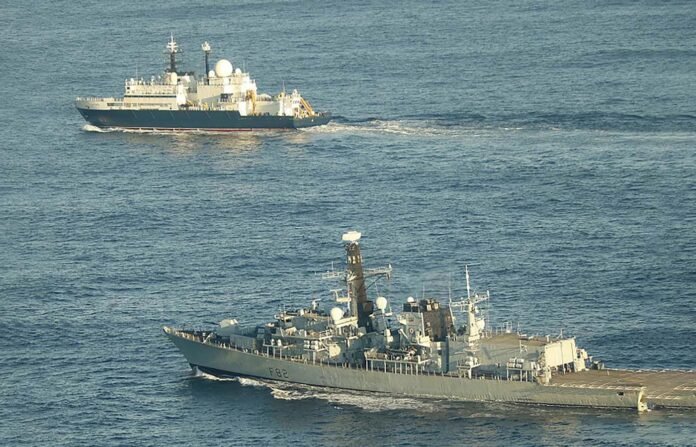Tel Aviv: Russian Navy’s ship Yantar has been spotted near England and the UK-Ireland area multiple times throughout 2025, drawing significant Western and NATO concern due to its espionage and sabotage capabilities targeting critical undersea infrastructure like communication cables and energy pipelines.
In 2024 and early 2025 this ship, officially classified as an oceanographic research vessel but widely suspected of conducting military intelligence operations, has conducted several notable missions in the Mediterranean in late 2024 and early 2025. Since then it has been under close surveillance of “Western forces”.
Western officials have warned that this vessel, which is run by Russia’s covert Directorate of Deep-Sea Research (GUGI), may interrupt communications, energy, or internet services in an emergency. It is accused of mapping, intercepting, and laying the framework for sabotage of underwater cables.
In September 2025, Yantar was sighted near the underwater cables that connect the United Kingdom and Ireland in the Irish Sea. When Yantar was detected around 45 miles off the coast of England, the UK military ships HMS Somerset and HMS Tyne trailed it for days in British seas.
Because of Yantar’s dubious operations mapping the undersea infrastructure of the United Kingdom, the Royal Navy was given permission of visit and closely monitor the company. These Russian reconnaissance efforts are linked to more widespread hybrid concerns, such as alleged espionage and an upsurge in Russian airspace violations in Europe.
Although Russia formally refers to Yantar as an oceanographic research vessel, NATO and other European navies continuously monitor it due to its dual-purpose deep-sea spying capabilities. GUGI, the vessel’s operator, specialises in underwater intelligence and sabotage, with missions expanding notably since Russia’s intensified war against Ukraine.
In response to recent activity, the UK and NATO have reinforced maritime defences in the region, including the deployment of specialised ships and aircraft focused on protecting infrastructure from Russian interference.






